Since 2011, small scale tea farmers in Deniyaya, Matara District, South Province, next to Sinharaja forest have been challenging to make the organic tea with our support. This project aims to 1. reduce tea small holders’ vulnerabilities in their livelihood with organic tea which can be sold in broader markets with organic premium, and 2. to protect the regional environment, especially Sinharaja forest which has been damaged by expansion of tea cultivation and chemical input for tea farming, and 3. reduce the health risk of consumers and farmers by chemical input. We organized the organic tea farming group, Eksath Kabonikka Tea Waga Karuwange Sangamay (United Organic Tea Cultivating Association; Eksath), and currently 87 farmers from Keeriweragama, Keeriweladola, and Batayaya, Pallegama in Deniyaya have joined this group.
 Sinharaja forest with tea field in the buffer zone.Sinhalaja forest is recognized World Heritage Site with its rich biodiversity and endemic species. But,it has been degraded by logging, expansion agricultural field.
Sinharaja forest with tea field in the buffer zone.Sinhalaja forest is recognized World Heritage Site with its rich biodiversity and endemic species. But,it has been degraded by logging, expansion agricultural field.
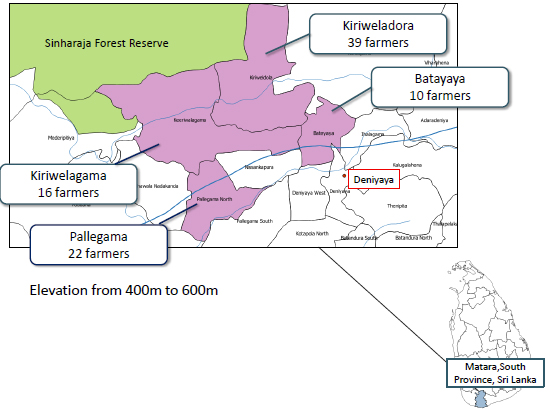 Map of project site
Map of project site
Each member were distributed a cow to make natural compost to apply to their organic field by themselves. They built a cow shed, a compost plot, and a boundary to segregate the organic plot and non-organic plot. The series of organic farming seminars have been held for group members. They cover topics such as; the basic knowledge about organic farming, the effective way of compost making and applying, cow feeding, and record keeping of farming. They also visited the Tea Research Institution (TRI) and the organic tea factory to improve the organic farming practice and the quality of tea in 2012. Field officers visit each farmer daily to monitor and guide their farming. Regular group meetings are held to discuss their problem, and share their experiences among group members.
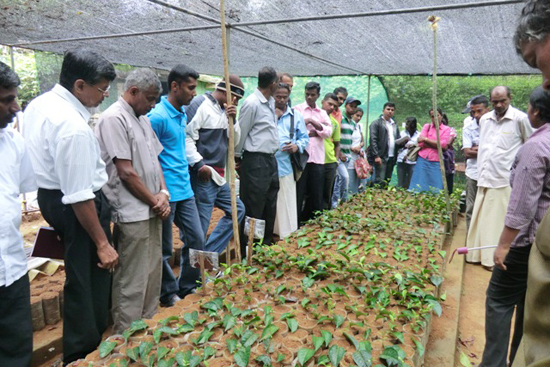 Exposure visit at TRI in Talawakale; lecture how to maintain nursery
Exposure visit at TRI in Talawakale; lecture how to maintain nursery
 Regular monitoring of tea field; guiding our member to keep farming record by staff
Regular monitoring of tea field; guiding our member to keep farming record by staff
 Field inspection for JAS organic certification
Field inspection for JAS organic certification
 Environmental research by members
Environmental research by members
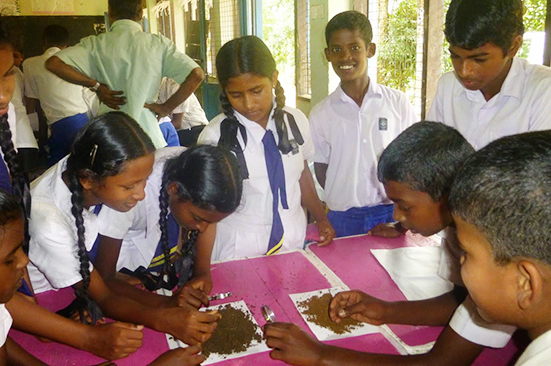 Environmental seminar for Batayaya school children
Environmental seminar for Batayaya school children
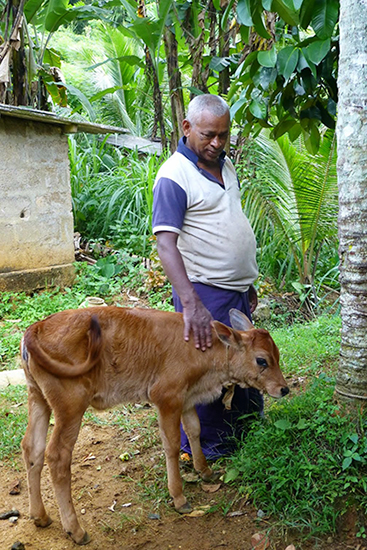 Baby cow from mother distributed to Mr. Piyadasa. He can get milk and additional income from selling milk.
Baby cow from mother distributed to Mr. Piyadasa. He can get milk and additional income from selling milk.
 Our member showing his compost to Prof. Subasinghe from Ruhuna Univ.
Our member showing his compost to Prof. Subasinghe from Ruhuna Univ.
 Mix cultivation with cinnamon, black pepper, coconuts, and so on.
Mix cultivation with cinnamon, black pepper, coconuts, and so on.
This organic tea group started to collect tea leaves from their organic tea plot and process them into organic tea at the organic tea factory, Nilmini tea factory, near Deniyaya.
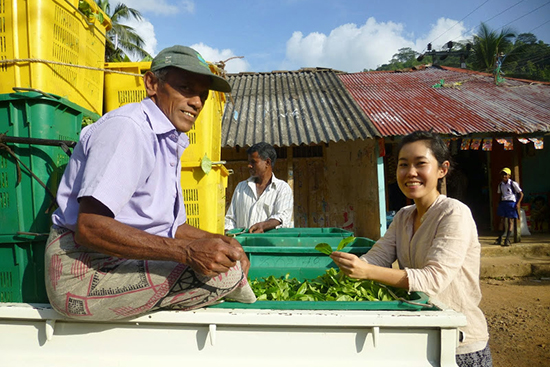 Tea leaf collection; Members’ tea are collected and sent to Nilmini organic tea factory weekly.
Tea leaf collection; Members’ tea are collected and sent to Nilmini organic tea factory weekly.
 Members’ tea leaf are collected and sent to Nilmini organic tea factory weekly. The quality of tea leaf is checked every time.
Members’ tea leaf are collected and sent to Nilmini organic tea factory weekly. The quality of tea leaf is checked every time.
With the support by organic tea factory, Nilmini Estate (Pvt) Ltd, about 400kg/month is produced by Eksath. PARCIC Tokyo has been selling Eksath’s tea as the fair trade product in Japan since 2013.
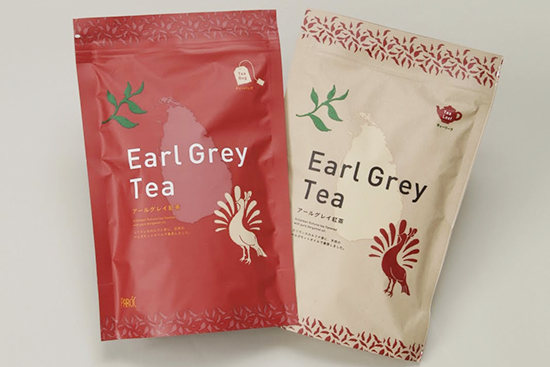 PARCIC’s tea package for Japanese market
PARCIC’s tea package for Japanese market

PARCIC’s Fair Trade Earl Grey Tea won The Social Products Award 2014 in Japan with its impact on society and environment.